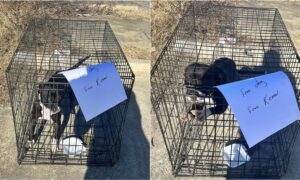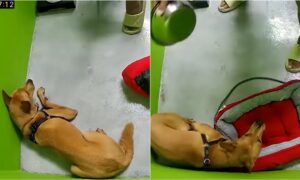“This post contains affiliate links, and I will be compensated if you make a purchase after clicking on my links.”
Just what is and how can you protect your dog from Canine Infectious Hepatitis? This is a virus most dogs will be exposed to at least once in their life. Originally diagnosed in 1947, canine hepatitis is an inflammation of the liver caused by exposure to canine adenovirus. Referred to as CIH, this virus attacks your dog’s blood vessels, liver, and lymphoid system. Your dog’s immune system may be strong enough for the virus to leave their body with no visible problems while other dogs will die within a few hours of contracting CID.
Protect your dog from Canine Infectious Hepatitis
The only way to be certain you are able to protect your dog from Canine Infectious Hepatitis is through vaccinating the dog to prevent this disease. Speak to you vet about the proper age levels for these vital vaccinations and be certain you adhere to their directions. The normal schedule for most breeds will be when the pup is 6 weeks old, and then one shot every four weeks up to the age of sixteen months old. Thankfully, due to most dogs being given these shots at the correct intervals CIH has been eliminated to a large extent in North America, but there are certain conditions where the virus will flare up.
Don’t worry about “catching” it from your dog. An article on PetWave.com states:
Infectious canine hepatitis is very uncommon in dogs that have been properly vaccinated as puppies and that are kept up to date on their vaccinations according to the current vaccination protocols of the time. ICH is not a zoonotic disease, which means that it is not transmitted from dogs to people.
Even if your furball is properly vaccinated, one of the conditions to be wary of for preventing a flare up of CIH is never allow your dog to be exposed to stray dogs or wild animals that might be carrying the virus. It is a well-documented problem among other wild canines such as coyotes and foxes. To protect your dog from Canine Infectious Hepatitis avoid letting them roam around your neighborhood, local park, and other places unsupervised. Keeping them on a leash allows you to control what other animals they come in contact with.
Keep the area of your yard clean of all dog feces and use a common lawn fertilizer spreader to spread powdered lime every couple of months. This will negate urine spots as well as the feces from developing CIH. Use a good flea and tick monthly treatment as the virus is also transmitted through bites from ticks, fleas, and mosquitoes.
The normal symptoms exhibited by a dog with CIH are high fever, hacking and coughing, eye and nasal discharges, light color to the feces, noticeable loss of appetite, and what is referred to as “Blue Eye”. Dogs with severe infection will have diarrhea, vomit, jaundice, and exhibit edema around their neck and head.
Give your wonderful pet the proper care and vaccinations to protect your dog from Canine Infectious Hepatitis. After all, they deserve our best as they give their best in return.
Have you had to deal with CIH? Comments are encouraged below.












